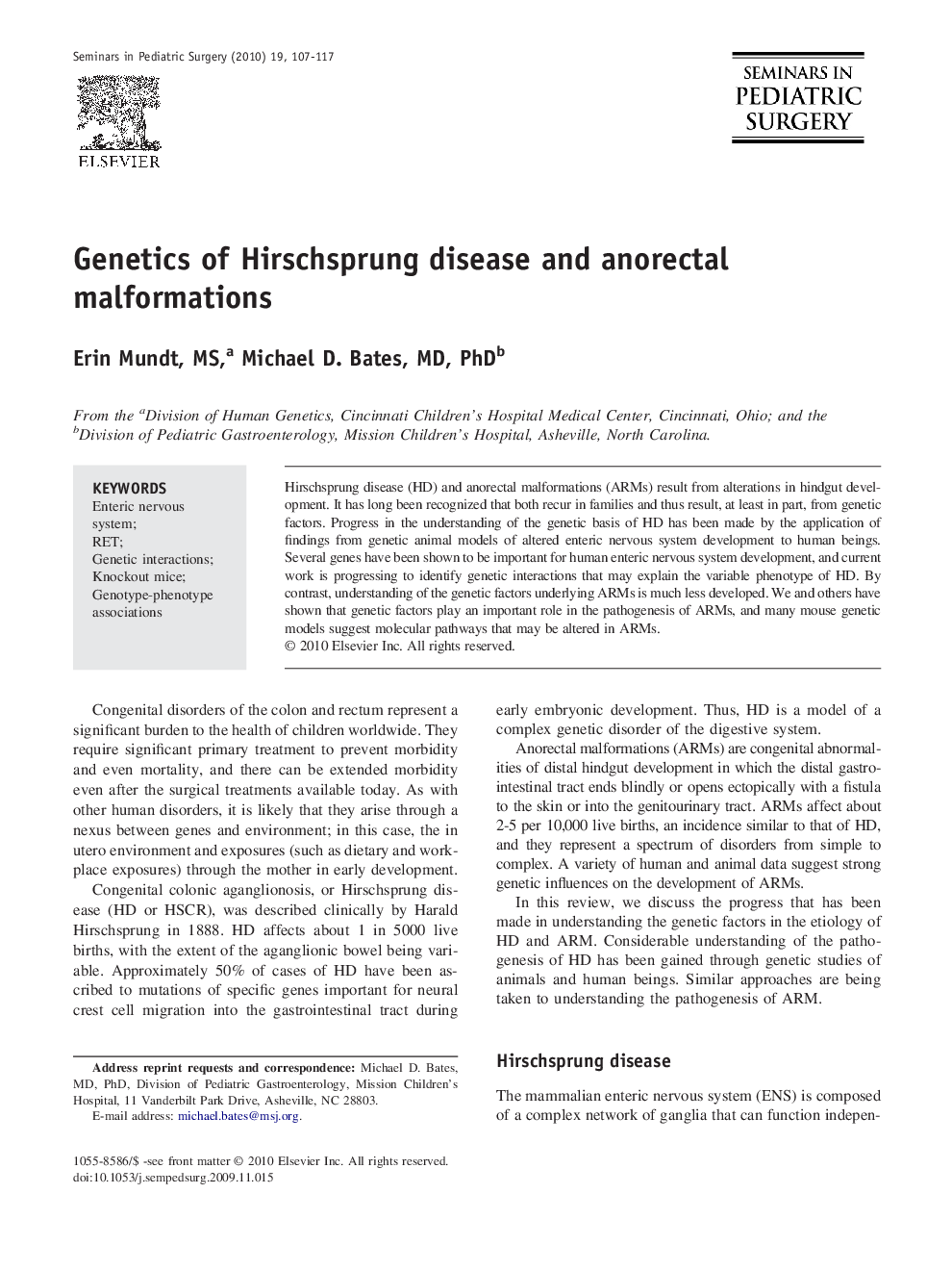| Article ID | Journal | Published Year | Pages | File Type |
|---|---|---|---|---|
| 4176777 | Seminars in Pediatric Surgery | 2010 | 11 Pages |
Hirschsprung disease (HD) and anorectal malformations (ARMs) result from alterations in hindgut development. It has long been recognized that both recur in families and thus result, at least in part, from genetic factors. Progress in the understanding of the genetic basis of HD has been made by the application of findings from genetic animal models of altered enteric nervous system development to human beings. Several genes have been shown to be important for human enteric nervous system development, and current work is progressing to identify genetic interactions that may explain the variable phenotype of HD. By contrast, understanding of the genetic factors underlying ARMs is much less developed. We and others have shown that genetic factors play an important role in the pathogenesis of ARMs, and many mouse genetic models suggest molecular pathways that may be altered in ARMs.
